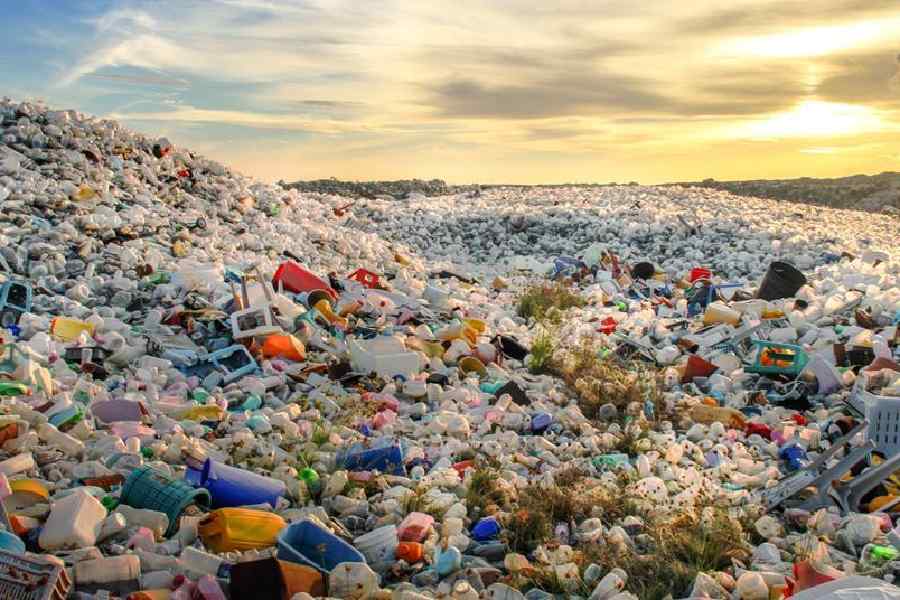A study published in the journal, Nature, has revealed that India is responsible for 20% — one-fifth — of the global plastic pollution, making it the world’s biggest polluter by surpassing China and the United States of America. India burns roughly 5.8 million tonnes of plastic each year and releases another 3.5 mt of plastics into the environment as debris. Admittedly, a lot of this plastic waste is not generated by India. More than 25 countries dumped about 78,000 mt of plastic waste in India in 2023, according to some estimates, even though the import of plastic waste is banned in India. But it cannot be denied that India has a waste management problem of its own. In an audit in 2023, the Central Pollution Control Board found over 6,00,000 fake pollution-trading certificates from just four of the 2,348 plastic waste recyclers registered with it. Moreover, although India forbade 19 single-use plastic items like spoons, straws, plates and polythene bags that are less than 120 microns thick in 2022, the CPCB is on record saying that the law is flouted with impunity. Even waste that is properly managed in India extracts a steep human cost — some 1.5 million waste-pickers, including women, children and the elderly, play a critical role in waste management and resource efficiency by collecting, sorting, trading and sometimes even reinserting discarded waste back into the economy. Yet, they face systemic marginalisation due to non-recognition, non-representation, and exclusion from social security schemes and legal protection frameworks.
In India, despite regulatory measures, their effective implementation and enforcement remain challenges in combating plastic pollution. Robust enforcement and ensuring compliance with existing laws coupled with public awareness campaigns and educational programmes are crucial to curbing the proliferation of plastic waste. The Nature study also comes at a time when negotiations for the first legally binding international treaty on plastics pollution — arguably the most important environmental pact after the Paris Agreement — are ongoing. However, consensus on what it should entail has been hard to come by. India has aligned with countries like Saudi Arabia that have plastic-petrochemical interests to insist that the treaty should focus on downstream waste management and not curb production. This reflects a blatant disregard for the scientific evidence surrounding climate change. No country can afford to shirk its responsibility of reducing plastic waste any longer given that each person consumes a credit-card-sized amount of microplastics every week on average.










